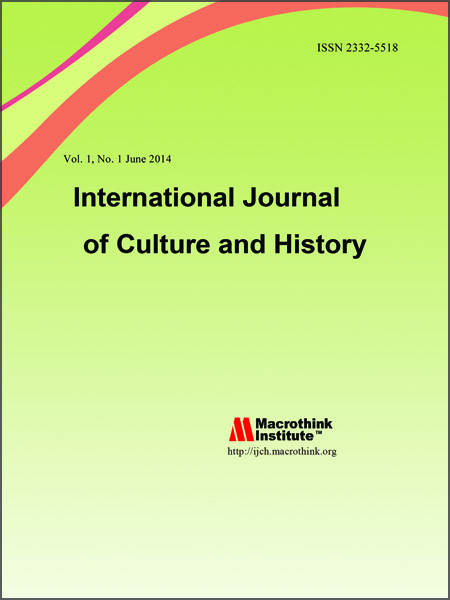Appellative Names: Nanuŋ Towns in Context
DOI:
https://doi.org/10.5296/ijch.v9i1.19854Abstract
In this paper, we focus on studying the appellative names of some towns in Nanuŋ and how these appellative names came into existence so as to uncover the important historical information, such as settlement history, folklore and social conditions about these places. Town names (toponyms) have attracted a lot of scholarly attention. However, appellative names, Nanuŋ appellative town names for that matter is yet to catch the eyes of scholars. No study has been sighted in relation to this study and thus triggers the study. Nanuŋ appellative town names are not haphazardly labeled, but sociocultural driven with sociocultural functions and meanings. Therefore, analysis is done with Vygotsky’s sociocultural theory. We established that numerous appellative town names of Nanuŋ reveal the culture of Nanuni speakers over many thousands of years. Many of these place names are complex and their meanings can only be explained by tracing the formative history and not the phonological, orthographic or morphological underpinnings. The researchers also established that, the processes of appellatively naming new places varies: contracted proverbial name, role of the place in the kingdom, expected behaviour of the skin occupant, socioeconomic activities, surrounding feature or place descriptive name, names after an earth-spirit/god and contextual obscure and opaque are the variations in the naming process. It is also evident that, the appellative town names of Nanuŋ are metaphorically constructed. However, these names have connections with the identity of the community members, since they taboo certain animals believed to be the gods of which these places are named after. The researchers employed purposive random sampling in the selection of the towns. However, snowballing technique was also employed to select the participants for primary data through interviews which were recorded with audio recorder and notepad.

